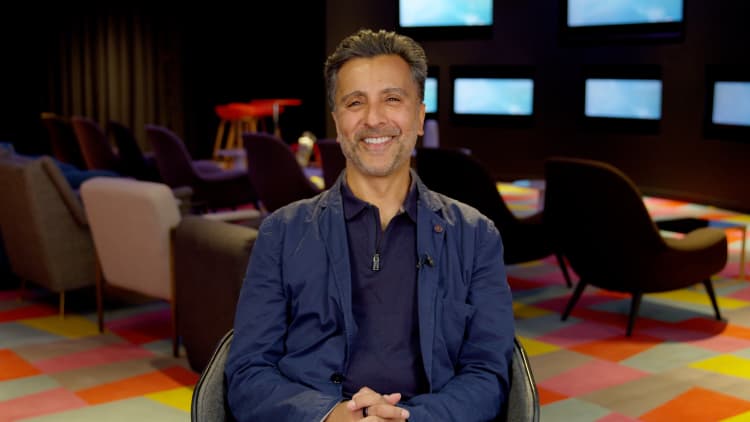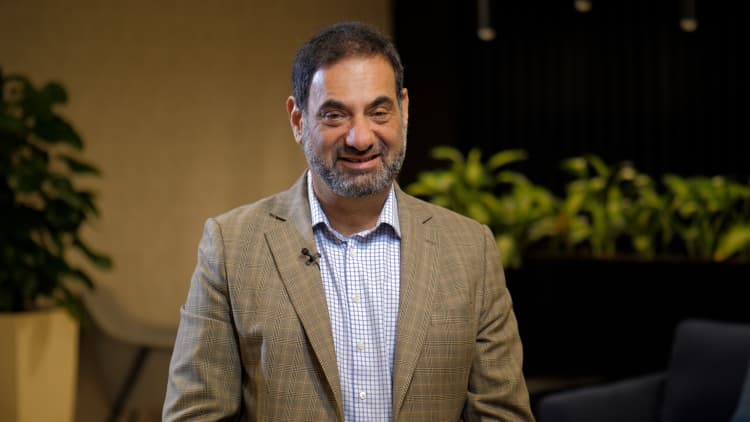
This story is part of the Behind the Desk series, where CNBC Make It gets personal with successful business executives to find out everything from how they got to where they are to what makes them get out of bed in the morning to their daily routines
Thirty-eight years ago, Jim Koch set out to change the landscape of American beer brewing.
At the time, he was a 34-year-old Harvard graduate who quit a high-paying job to try building Sam Adams — a craft beer startup in an industry dominated by huge, mostly foreign conglomerates — from his family’s Boston kitchen.
Today, Koch is considered a pioneer of America’s thriving craft beer scene. He’s the founder and chairman of Sam Adams’ parent Boston Beer Company, which employs more than 2,500 people and pulls in more than $2 billion in annual revenue.
The company has far outpaced his initial vision of being a small, regional craft brewer with just a handful of employees and around $1.2 million in annual revenue, he says. Yet even now, he’s cautious to acknowledge success.
“Sam Adams is less than 1% of the U.S. beer business,” Koch, 73, tells CNBC Make It. “So the reality is, after 38 years of being pretty successful, we’ve basically gone from infinitesimal to tiny.”

Koch even says he might have been happier, in the long run, if Sam Adams had stayed small. In his current role, he sometimes takes four flights per week — an exhausting amount of travel, especially at age 73.
“It’s a flip of the coin,” he told CNBC Make It last month, saying each scenario would come with “different blessings, different curses.”
Here, Koch discusses the process of becoming a role model for the modern American craft brewing industry, how he overcomes his shortcomings as a manager and the daily morning routine that helps him focus on what’s “important,” rather than what’s “urgent.”
On becoming the role model the craft beer movement needed to thrive: It ‘felt like fate, almost’
The blessing I’ve been able to have, because of the success of Sam Adams, is this feeling of having accomplished something meaningful and important. Steve Jobs put a ding in the universe. I put a tiny, inverse, concave pimple.
Small as it is, it’s something.
I got to help pioneer the craft beer revolution that changed the face of American brewing. I come from six generations of brewmasters. American brewing was utterly transformed by the craft beer revolution that Sam Adams helped start and has helped lead for 38 years. And, to me, that’s just personally really cool.
But the original business plan did not contemplate selling any meaningful volume outside of the Boston area. I thought it would be a little local brewery. There were no successful craft brewers in the United States. They were all very local, scraping by and not getting traction.
There was no role model at that point, and there needed to be one. I was the only sixth-generation brewer in the United States. And to have this brewing background and the education to see and run with the opportunity felt like fate, almost.
So it was like: ‘I have to take this ride to the end of the line. I gotta see where this goes.’ And it was fun!
On learning to overcome shortcomings: ‘I don’t try to be a good manager’
I learned early on that I was not a good manager. I’m OK with that. There are people who are good managers. I am not one of them.
I’m not really great at follow-up, not that great at details. I’m not that organized. And I’m not a real respecter of “process.” I don’t try to be a good manager. I try to make sure that I’ve got a good manager as CEO.
You could draw a two-by-two matrix. One axis is: “How much value does this activity add to the company?” And No. 2: “How much can I contribute to it?” I try to stay in the upper right box of things that add a lot of value to the company, where I can make a meaningful difference.
Luckily, I can find enough of those at any given time to fully occupy as much time as I can devote. I still work 60-hour weeks.
I spend a lot of time out of the office, working in either the breweries or the markets. To me, that’s where the action is. That kind of direct contact with the retailers, drinkers, distributors and our own team is invaluable in making good fundamental decisions. Essentially, that’s my job — to make good decisions for the company — and I learned I can’t do that sitting in an office.
It’s a lot easier to hire good managers than good leaders. My job is to be leading the company, and you’ve got to lead from the front.
On his daily morning routine: ‘The day is not over until I’ve done them and done them well’
People ask me: “You’ve been doing this for 38 years. You’re not doing it for the money. What gets you up in the morning?”
I’m excited when I wake up in the morning. I get excited on Sunday night, because I know when I wake up, it’s going to be Monday, and I’m going to get to do cool things. It sounds a little sick, but it’s a great feeling.
Every morning, I write down my three priorities for the day. Meaning, there’s three things that I am going to do today, and the day is not over until I’ve done them and done them well.
That’s a helpful habit, because it focuses you. Some of them might be pretty small, but important. But, like, today, there’s a very meaningful conversation that I want to have at the end of the day with our head of supply chain. I will make sure that I’ve left an hour of thinking time to prepare for an hour-and-a-half conversation.
We tend to let our days get filled with urgent [matters]. It’s a way for me to anchor my day in the important and not the urgent.
Sign up now: Get smarter about your money and career with our weekly newsletter
Don’t miss:
Why the first Black woman CEO in the Fortune 500 says ‘being the minority’ can be a career advantage

